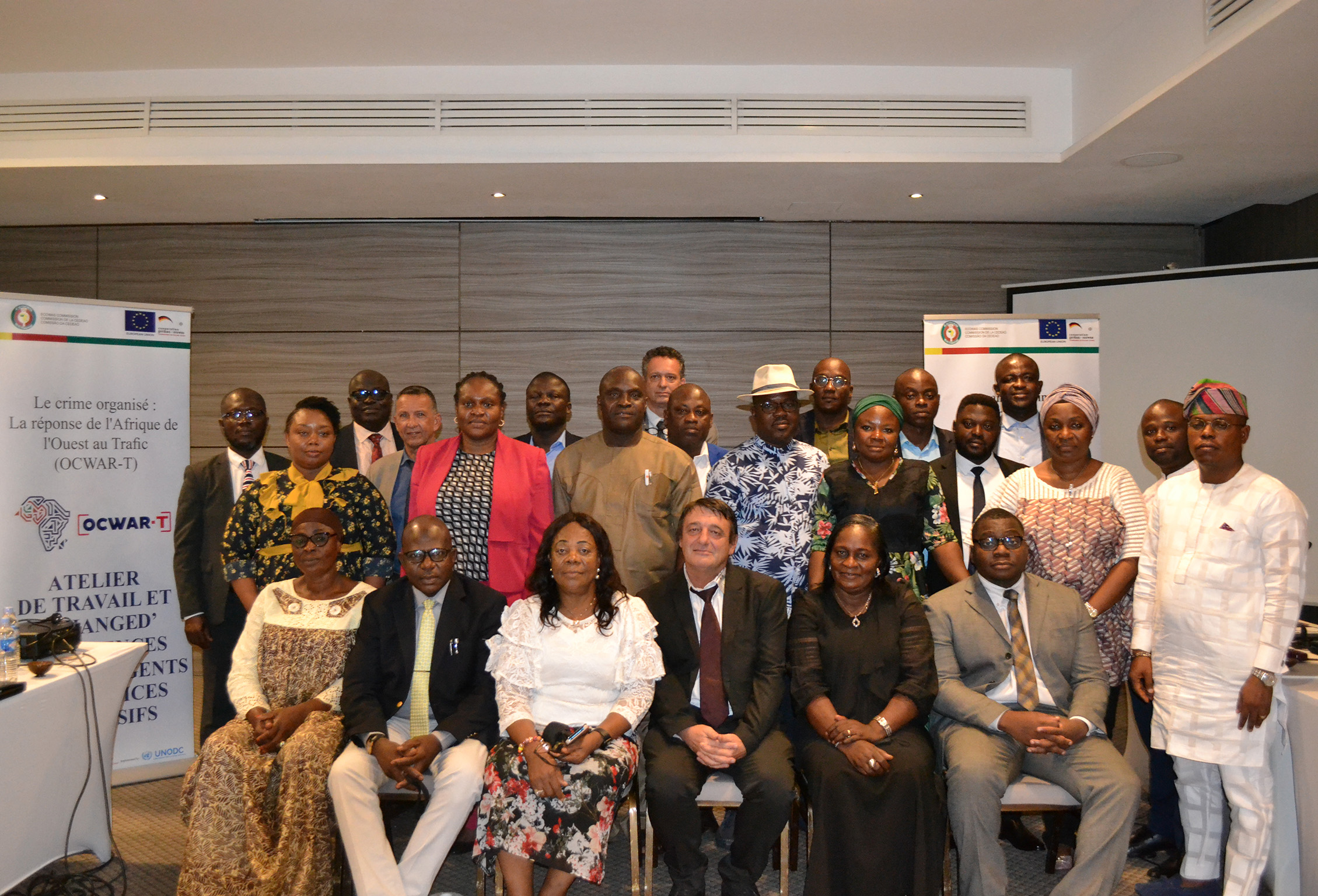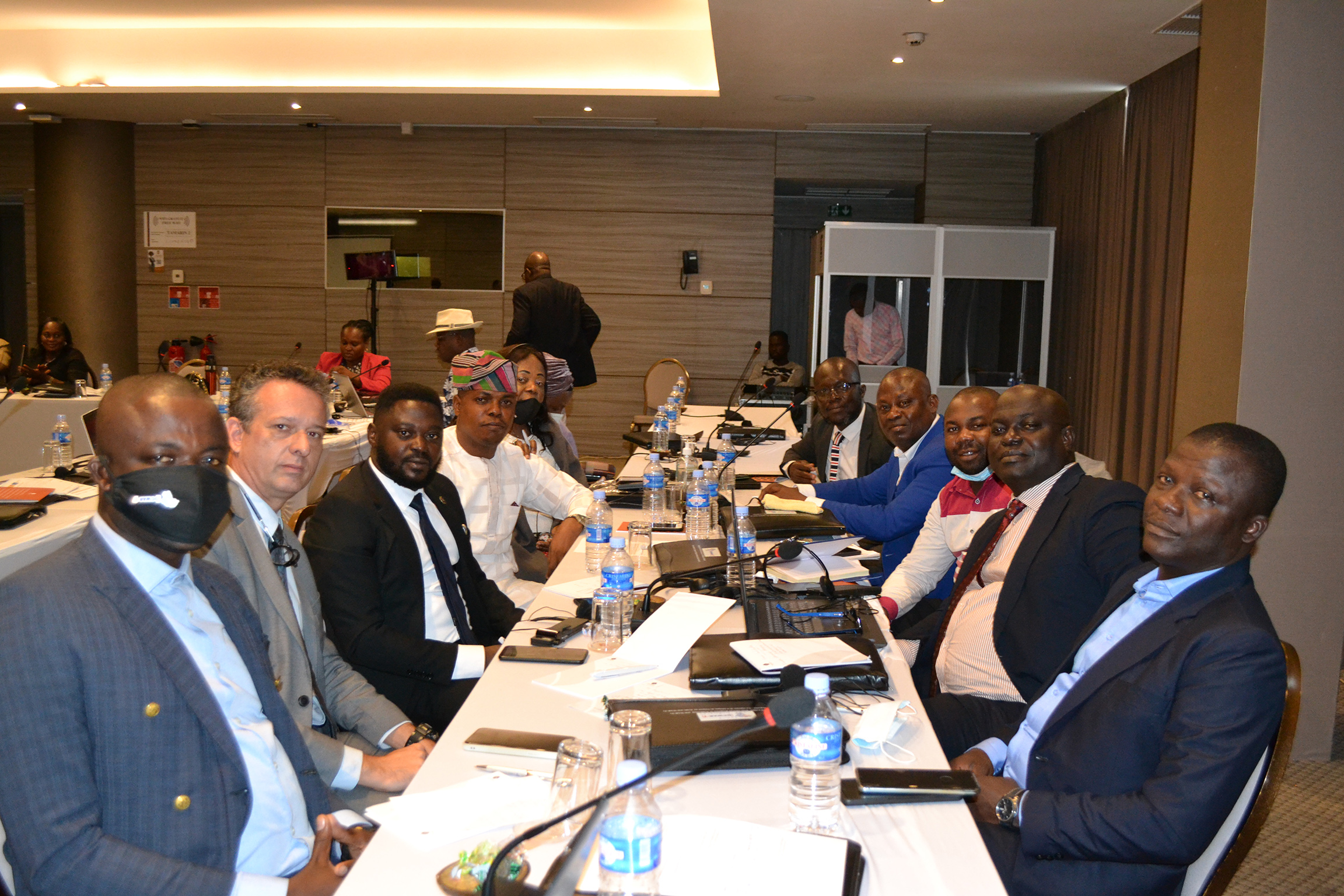
WACI/OCWAR-T
| The Challenge |
West Africa is among the poorest and most vulnerable regions in the world. Only two of the 15-member states of the Economic Community of West African States (ECOWAS) show a medium Human Development Index according to the 2016 UNDP Human Development Report (Ghana and Cabo Verde).
The region is affected by several transnational organized crime (TOC) flows, attracted by and aggravating the vulnerability of the region. TOC in all its forms, illicit trafficking (e.g. trafficking in drugs, human beings, and firearms), fraud, the laundering of criminal assets and terrorism financing, in conjunction with weak criminal justice systems, poses a major threat to the stability and legitimacy of governments in the ECOWAS region and the Rule of Law. Trafficking of drugs and Trafficking In Persons (TIP) are the two most pressing issues.
West and Central Africa, along with North African countries, accounts for eighty-seven per cent of pharmaceutical opioids seized globally in 2016 and Africa, along with Asia, also saw the largest rises in cocaine seizures in 2016. West Africa continues to be a transhipment region for cocaine trafficking, but also growingly has become a place for the production and trafficking of methamphetamines and other synthetic drugs. In addition, over the past years there has been an evident proliferation of counterfeit and substandard medicines in the West African markets.
TIP in West Africa is mainly internal and regional. Major inter-regional trafficking routes exist, with victims from West Africa, mostly women and children, identified especially in Europe and the Middle East. People trafficked in often dangerous and degrading conditions are vulnerable to coercion and abuse. The most common forms of exploitation are sexual exploitation and forced labour.
The West Africa Coast Initiative (WACI) was launched in 2009 as a comprehensive and multi-stakeholder partnership between UNODC, UNOWAS, DPPA, DPO and INTERPOL. Organized Crime: West African Response to Trafficking (OCWAR-T) was launched in 2019 as an ECOWAS support project, commissioned by the German Government and Co-funded by the EU, Coordinated by GIZ, in Cooperation with UNODC, UNDP, MAG, ICMPD and Enhancing Africa's response to TOC. Both projects support the implementation of the ECOWAS Political Declaration and Action Plan to Address the Growing Problem of Drug Trafficking, Organized Crime and Drug Abuse in West Africa.
Both initiatives focus on West African fragile or post-conflict countries (Benin, Cote D'Ivoire, Guinea, Guinea Bissau, Liberia, Sierra Leone and The Gambia) to reduce their vulnerability to illegal trafficking and organized crime; assist these countries to enhance national enforcement and justice institutions; and build capacity for better national, regional and international enforcement cooperation.
The cornerstone of WACI and OCWAR-T rests on the establishment and operationalization of Transnational Crime Units (TCU) and Criminal Intelligence and Investigation Task Forces (CIITF). The projects set-up and train the TCUs and CIITFs through technical assistance, tailor-made specialized training and mentoring as well as joint operations and exercises.
TCUs / CIITFs are national centralised inter-agency units to collect and analyse information, as well as disseminate intelligence on transnational organized crime and drug trafficking; carry out investigations of complex criminal cases; coordinate cross-border investigations through INTERPOL; and strengthen the capacity of Law Enforcement Agencies in complex investigations.


Praia Declaration 2008 EcowasPoliticalDeclaration (unodc.org)
UNTOC United Nations Convention against Transnational Organized Crime (unodc.org)
Transnational Crime Units West Africa Coast Initiative (unodc.org)

